Shangzi Xue
EduNLP: Towards a Unified and Modularized Library for Educational Resources
Jun 04, 2024
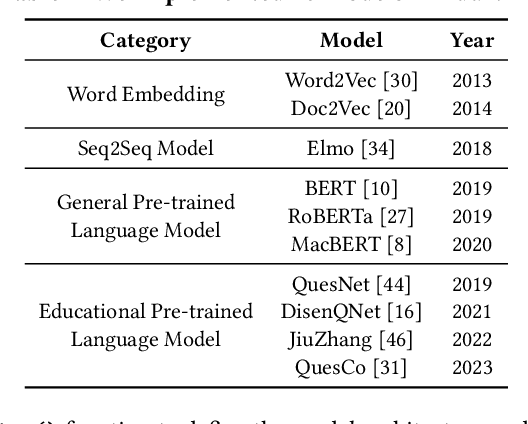
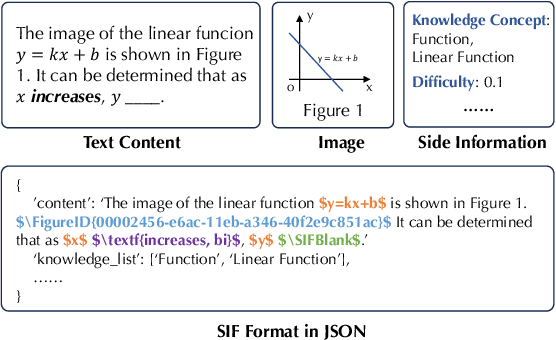
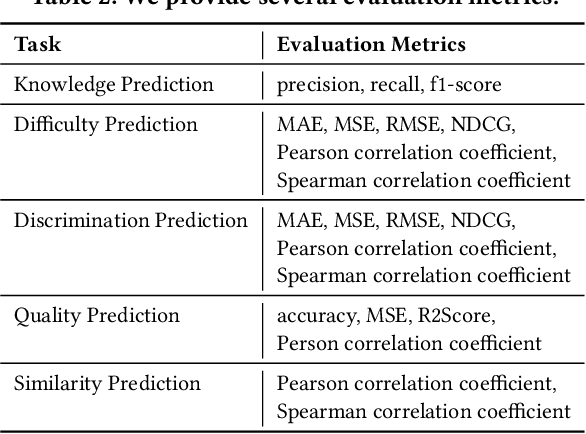
Abstract:Educational resource understanding is vital to online learning platforms, which have demonstrated growing applications recently. However, researchers and developers always struggle with using existing general natural language toolkits or domain-specific models. The issue raises a need to develop an effective and easy-to-use one that benefits AI education-related research and applications. To bridge this gap, we present a unified, modularized, and extensive library, EduNLP, focusing on educational resource understanding. In the library, we decouple the whole workflow to four key modules with consistent interfaces including data configuration, processing, model implementation, and model evaluation. We also provide a configurable pipeline to unify the data usage and model usage in standard ways, where users can customize their own needs. For the current version, we primarily provide 10 typical models from four categories, and 5 common downstream-evaluation tasks in the education domain on 8 subjects for users' usage. The project is released at: https://github.com/bigdata-ustc/EduNLP.
A Knowledge-Injected Curriculum Pretraining Framework for Question Answering
Mar 11, 2024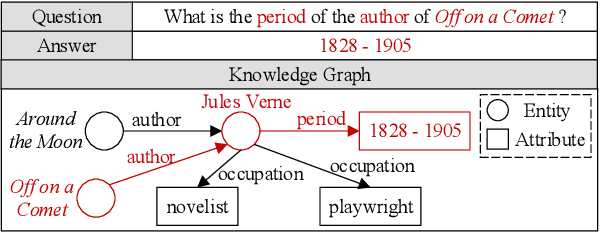
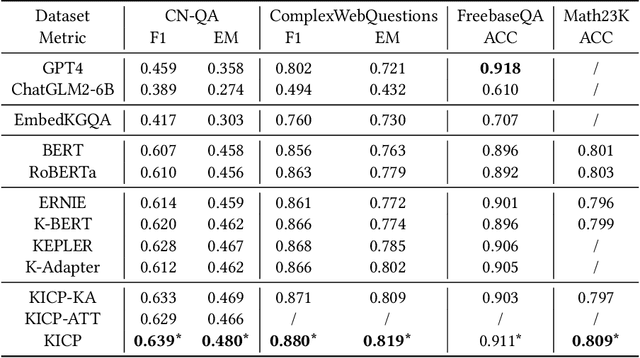
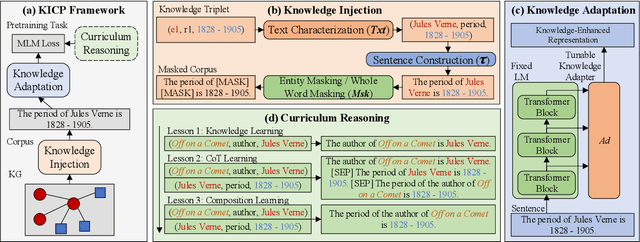
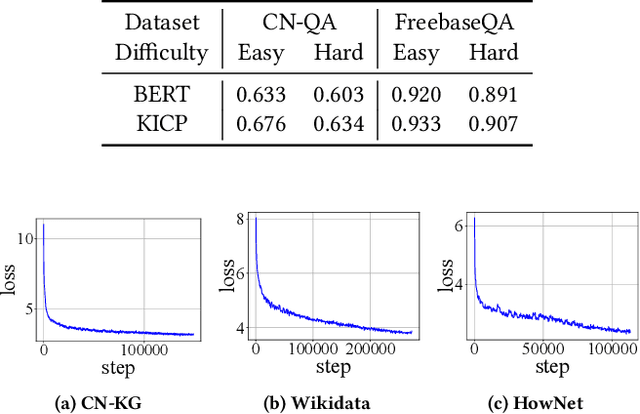
Abstract:Knowledge-based question answering (KBQA) is a key task in NLP research, and also an approach to access the web data and knowledge, which requires exploiting knowledge graphs (KGs) for reasoning. In the literature, one promising solution for KBQA is to incorporate the pretrained language model (LM) with KGs by generating KG-centered pretraining corpus, which has shown its superiority. However, these methods often depend on specific techniques and resources to work, which may not always be available and restrict its application. Moreover, existing methods focus more on improving language understanding with KGs, while neglect the more important human-like complex reasoning. To this end, in this paper, we propose a general Knowledge-Injected Curriculum Pretraining framework (KICP) to achieve comprehensive KG learning and exploitation for KBQA tasks, which is composed of knowledge injection (KI), knowledge adaptation (KA) and curriculum reasoning (CR). Specifically, the KI module first injects knowledge into the LM by generating KG-centered pretraining corpus, and generalizes the process into three key steps that could work with different implementations for flexible application. Next, the KA module learns knowledge from the generated corpus with LM equipped with an adapter as well as keeps its original natural language understanding ability to reduce the negative impacts of the difference between the generated and natural corpus. Last, to enable the LM with complex reasoning, the CR module follows human reasoning patterns to construct three corpora with increasing difficulties of reasoning, and further trains the LM from easy to hard in a curriculum manner. We provide an implementation of the general framework, and evaluate the proposed KICP on four real-word datasets. The results demonstrate that our framework can achieve higher performances.
A Novel Approach for Auto-Formulation of Optimization Problems
Feb 09, 2023



Abstract:In the Natural Language for Optimization (NL4Opt) NeurIPS 2022 competition, competitors focus on improving the accessibility and usability of optimization solvers, with the aim of subtask 1: recognizing the semantic entities that correspond to the components of the optimization problem; subtask 2: generating formulations for the optimization problem. In this paper, we present the solution of our team. First, we treat subtask 1 as a named entity recognition (NER) problem with the solution pipeline including pre-processing methods, adversarial training, post-processing methods and ensemble learning. Besides, we treat subtask 2 as a generation problem with the solution pipeline including specially designed prompts, adversarial training, post-processing methods and ensemble learning. Our proposed methods have achieved the F1-score of 0.931 in subtask 1 and the accuracy of 0.867 in subtask 2, which won the fourth and third places respectively in this competition. Our code is available at https://github.com/bigdata-ustc/nl4opt.
 Add to Chrome
Add to Chrome Add to Firefox
Add to Firefox Add to Edge
Add to Edge